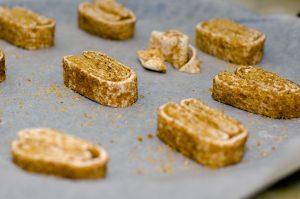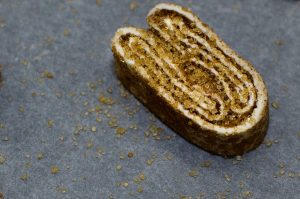Puerto Rican chocolate is renowned for its exceptional flavors, aromas, and complexity that can rival the best chocolates in the world. The unique taste of Puerto Rican chocolate can be attributed to several factors.
Firstly, the careful selection of high-quality cacao seeds plays a crucial role in the flavor profile of Puerto Rican chocolate. Farmers in Puerto Rico prioritize the cultivation of superior cacao varieties that exhibit the most desirable flavor characteristics. This attention to seed selection ensures that only the best quality beans are used in the chocolate-making process.
Furthermore, the optimal soil conditions in Puerto Rico contribute to the distinct taste of the chocolate. The island’s fertile soil, combined with the tropical climate and rich biodiversity, provides an ideal environment for cacao trees to flourish. These favorable conditions impart unique flavors and nuances to the cacao beans, which are then translated into the final chocolate product.
Moreover, Puerto Rican chocolate is known for its diverse range of flavors and characteristics. From rich and velvety textures to fruity and floral notes, each chocolate bar tells a story of the island’s unique terroir. Whether it’s the subtle hints of tropical fruits or the deep earthy undertones, Puerto Rican chocolate offers a sensory experience that captivates chocolate enthusiasts.
To illustrate the unique flavors and characteristics of Puerto Rican chocolate, let’s take a look at an example. One renowned Puerto Rican chocolate brand, Tresbé, produces a variety of chocolate bars that showcase the distinct flavors of the island. Their “Tropical Fruit Medley” bar combines the richness of dark chocolate with the vibrant flavors of local fruits such as mango, passion fruit, and pineapple. This blend of flavors represents the essence of Puerto Rico, creating a truly unique and indulgent chocolate experience.
The Rich History of Chocolate Making in Puerto Rico



The history of chocolate making in Puerto Rico dates back to the Spanish colonial period. During this time, cocoa production became an important economic driver for the island. Puerto Rico experienced a cocoa boom in the late 19th and early 20th centuries, with many farms established throughout the region.
However, cocoa production in Puerto Rico faced challenges in the latter part of the 20th century, such as competition from larger cocoa-producing countries and the emergence of other industries. Despite this decline, there has been a resurgence of interest in cocoa farming in Puerto Rico in recent years.
The revival of the cocoa industry has been driven by a renewed focus on sustainable and organic farming practices, as well as the production of fine flavor cocoa. Farmers and producers in Puerto Rico are dedicated to preserving traditional methods of cocoa cultivation and processing while incorporating modern techniques to ensure the highest quality chocolate.
An example of the rich history of chocolate making in Puerto Rico can be seen in the Hacienda Buena Vista, a historic coffee and cacao plantation. This plantation, located in Ponce, offers visitors a glimpse into the past with its restored 19th-century buildings and exhibits on chocolate production. Tourists have the opportunity to learn about the traditional methods used in cocoa farming and experience the flavors of Puerto Rican chocolate firsthand.
The Process of Chocolate Making in Puerto Rico
- Planting: The process starts with the planting of cocoa beans. This involves the careful selection of high-quality seeds and creating optimal soil conditions for growth.
- Harvesting: The cacao pods are harvested.
- Fermentation: Beans undergo a fermentation process to develop flavors. This natural fermentation takes several days, allowing the beans to undergo chemical changes that enhance taste. Here, the complex flavors and aromas of the chocolate begin to develop.
- Drying: The beans are dried to reduce moisture content. This can be under the sun or using specialized drying equipment. Proper drying prevents mold growth and preserves bean quality.
- Roasting: Beans are roasted to bring out flavors and aromas. The duration and temperature of roasting can vary. This step is key for the distinctive flavors that Puerto Rican chocolate is recognized for.
- Grinding: Post-roasting, beans are ground into a paste called cocoa liquor.
- Conching: The paste is conched to refine its texture and flavor. This process also helps remove remaining moisture and develop the chocolate’s complex flavors.
- Tempering and Molding: The chocolate is tempered and molded into bars or other shapes. Tempering involves careful heating and cooling for a smooth and shiny finish. Once molded, the chocolate cools and hardens into the final product.
- Traditional Techniques: Puerto Rico often employs traditional techniques in harvesting and processing, ensuring the authentic flavors and characteristics of the chocolate. The use of high-quality beans leads to the exceptional taste of Puerto Rican chocolate.
- Example – Cacao Prieto: A craft chocolate company in Puerto Rico that follows a bean-to-bar approach. They control every chocolate-making step, sourcing beans from their organic farm prioritizing sustainable farming practices. Beans are fermented, dried, roasted, and ground in-house to create their chocolate bars. This ensures high quality and highlights the unique flavors of Puerto Rican chocolate.
Notable Puerto Rican Chocolate Brands and Producers
Puerto Rico is home to several notable chocolate brands and producers that showcase the quality and variety of Puerto Rican chocolate. These brands have gained recognition for their commitment to excellence and their contribution to the island’s chocolate industry.
One such brand is Semila cocoa farm, a woman-owned business that focuses on sustainability and organic farming practices. Their dedication to environmental stewardship and social responsibility is evident in every aspect of their chocolate production. They work closely with local farmers and communities to promote fair trade practices, supporting the local economy.
Chocobar Cortés, located in Old San Juan, is another renowned establishment that offers a wide range of chocolate-infused dishes and drinks. Their menu features innovative creations that highlight the versatility of chocolate as an ingredient. From savory dishes like cocoa-rubbed steak to decadent desserts like chocolate lava cake, Chocobar Cortés offers a unique culinary experience for chocolate lovers.
Montadero Chocolate is a family-owned business dedicated to reviving their family’s chocolate-making tradition. They produce a variety of chocolates, including milk chocolate, dark milk chocolate, and dark chocolate bars, bonbons, and hot chocolate. Montadero Chocolate is known for their commitment to using 100% Puerto Rico cacao beans, supporting the island’s agrotourism industry, and promoting the unique flavors of Puerto Rican chocolate.
These brands and producers exemplify the passion and dedication of the Puerto Rican chocolate industry, showcasing the quality and variety available. Their commitment to sustainability, organic practices, and supporting local communities contributes to the overall excellence of Puerto Rican chocolate.
To further illustrate the notable Puerto Rican chocolate brands and producers, let’s delve into the example of Taino Chocolate, a bean-to-bar chocolate company located in the heart of Puerto Rico. Taino Chocolate prides itself on producing high-quality chocolate using ethically sourced cacao beans. They work directly with local farmers to ensure fair prices and promote sustainable farming practices. Taino Chocolate offers a wide range of chocolate products, from single-origin bars to unique flavor combinations like chili-infused chocolate. Their commitment to quality and their contribution to the local community make them a prominent player in the Puerto Rican chocolate industry.
Sustainability and Fair Trade Practices in the Puerto Rican Chocolate Industry
The Puerto Rican chocolate industry places a strong emphasis on sustainability and fair trade practices. Efforts are made to ensure the long-term viability of cocoa farming in Puerto Rico while promoting environmental stewardship and social responsibility.
One of the key aspects of sustainability in the Puerto Rican chocolate industry is the preservation of natural resources. Organic farming practices are encouraged to minimize the use of pesticides and chemical fertilizers, protecting the environment and biodiversity of the island. By prioritizing organic methods, chocolate producers in Puerto Rico contribute to the sustainability of cocoa farming and help maintain the health of the ecosystems in which cacao trees thrive.
Fair trade practices are also integral to the Puerto Rican chocolate industry. Many chocolate brands and producers in Puerto Rico work directly with local farmers, establishing long-term relationships based on fair pricing and mutual respect. By paying fair prices for cacao beans, chocolate producers support the livelihoods of farmers and contribute to the economic development of local communities. This fair trade approach ensures that the benefits of the chocolate industry are shared equitably among all stakeholders involved in cocoa production.
Furthermore, chocolate brands in Puerto Rico actively promote environmental stewardship and social responsibility. They implement sustainable packaging practices, minimize waste generation, and invest in renewable energy sources. These efforts aim to reduce the environmental footprint of the chocolate industry and create a more sustainable future.
To highlight the sustainability and fair trade practices in the Puerto Rican chocolate industry, let’s look at the example of Cacao Oro de Puerto Rico. This cooperative of small-scale farmers focuses on organic and sustainable cocoa production. They work together to implement environmentally friendly farming practices, such as composting and natural pest control methods. By supporting Cacao Oro de Puerto Rico, consumers contribute to the preservation of the island’s natural resources and the empowerment of local farmers.
The commitment to sustainability and fair trade practices in the Puerto Rican chocolate industry ensures the long-term viability of cocoa farming while promoting ethical and responsible practices. By choosing Puerto Rican chocolate, consumers can enjoy a delicious treat while supporting a more sustainable and equitable chocolate industry.
The Future of Puerto Rican Cocoa
The future of Puerto Rican cocoa looks promising, with a strong focus on sustainability and flavor. Continuous efforts are being made to improve cocoa production techniques and maintain high-quality standards in the industry.
The resurgence of interest in cocoa farming in Puerto Rico has sparked a renewed passion for the unique flavors and characteristics of Puerto Rican chocolate. Locally and internationally, there is a growing demand for Puerto Rican cocoa and chocolate, driven by the recognition of its exceptional quality.
The future of Puerto Rican cocoa lies in the hands of dedicated farmers, producers, and chocolate enthusiasts who are committed to preserving the island’s chocolate heritage. Ongoing investments in sustainable farming practices, research, and innovation contribute to the growth and development of the Puerto Rican cocoa industry.
With its exceptional flavors, dedication to sustainability, and promising potential, Puerto Rican cocoa has the opportunity to make a significant impact in the global chocolate market. The unique taste and the commitment to quality make Puerto Rican chocolate a sought-after treat for chocolate lovers worldwide.
In conclusion, Puerto Rican chocolate offers unique flavors and characteristics that can compete with the best in the world. The careful selection of high-quality cacao seeds, optimal soil conditions, and the use of 100% Puerto Rico cacao beans contribute to the exceptional taste of Puerto Rican chocolate. The rich history and tradition of chocolate making in Puerto Rico, along with the focus on sustainable and organic farming practices, further enhance the uniqueness of Puerto Rican chocolate. Notable Puerto Rican chocolate brands and producers, such as Semila and Montadero Chocolate, exemplify the quality and variety available. The commitment to sustainability and fair trade practices ensures the long-term viability of the Puerto Rican chocolate industry. With a promising future, Puerto Rican cocoa has the potential to make a mark in the global chocolate market.

